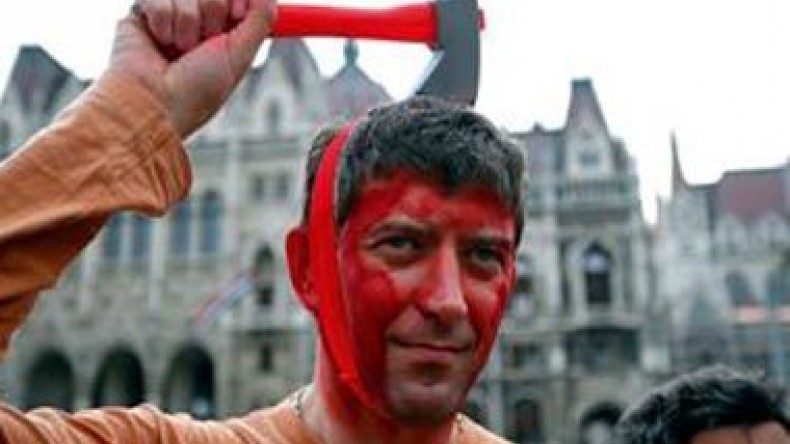
Moral compass goes awry
Below, is an article by Edward Lucas, editor of the international section of The Economist, published in the EuropeanVoice.com.
Azerbaijan used to mind what policymakers in Brussels and NATO thought. Now it does not.
Azerbaijan and Hungary both have serious questions to answer about the case of Ramil Safarov, an Azeri military officer attending a NATO-run English-language course in Budapest, who murdered a sleeping fellow-student with an axe in 2004. But the most unpleasant consequences are for Brussels and Washington, DC.
The victim was an Armenian officer called Gurgen Margarjan. Azeris did suffer abominable atrocities at Armenian hands during the war that finished with the 1994 ceasefire. As it happens, Armenians also suffered abominable atrocities at Azeri hands. Working out who behaved worst is tricky (though not impossible). Perhaps one day when the two countries are at peace, they will produce a common account of all the casualties of those terrible years.
Even if the two countries had been at war, Safarov's behaviour would have been criminal. Killing an unarmed enemy combatant in his sleep, in cold blood, in a neutral country is wrong. And the real fighting has been over for a decade (though people still get killed in skirmishes on the ceasefire line). In short, murdering people is wrong whether they are from friendly countries or hostile ones.
The Hungarian authorities have not explained convincingly why they last month let Safarov – one of their country's most controversial prisoners – go back to Azerbaijan. It is true that Azeri authorities requested this and that a Council of Europe framework for prisoner exchange permits it. But it does not mandate it. So the allegation that Hungary took this step in return for a large lump of Azeri money (some say €3 billion) deserves scrutiny.
The Azeri reaction in instantly pardoning Safarov, awarding him back pay and an apartment, and treating him like a national hero, is deplorable. Yes, Azeris feel that they are the victims of a clever propaganda campaign by the wily Armenians, in which their sufferings are ignored. Yes, some of the land now occupied by Armenia is not even part of the contested territory of Nagorno-Karabakh (which has historic Armenian roots). It was simply swiped.
But victimhood does not create moral legitimacy. How would Azerbaijan be reacting now if the murder had been the other way round? If Armenian hit squads were going round the world killing random Azeris? That would rightly be condemned (not least by Azeris) as cowardly, brutal and deserving criminal sanctions. Glorifying Safarov has made Azerbaijan look hysterical and morally suspect in world eyes. That is hardly a triumph for Azeri diplomacy. Hungary looks at best gullible and, at worst, greedy and deceitful.
But the big point is that both countries seem to think they can get away with their behaviour. The case illustrates the huge collapse in the moral authority of the EU and NATO since 2004. In preceding years, joining Western clubs was a matter of great pride for those newly admitted, and of great priority for those outside. They took care not to break the rules and (sincerely or not) to please international opinion.
Azerbaijan used to mind what policymakers in Brussels and NATO thought. Now it does not. It sees no realistic chance of membership in either organisation. It is bulging with oil money. It exploits cannily its useful geopolitical niche as a place to spy on (and perhaps bomb) Iran.
Hungary is not bulging with money. Indeed, its public finances feature gaping holes. But it too cocks a snook at Brussels (and Washington). Victor Orbán, the prime minister, makes his own decisions (often bad ones) and waits for the world to get used to them.
The knots that bound countries' behaviour in Europe since the mid-1990s once seemed indestructible. Now they are fraying fast.
Newsfeed
Videos






























